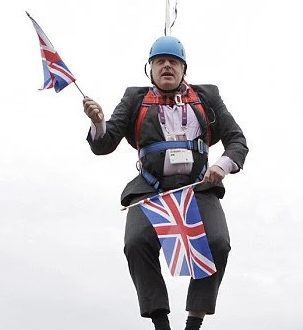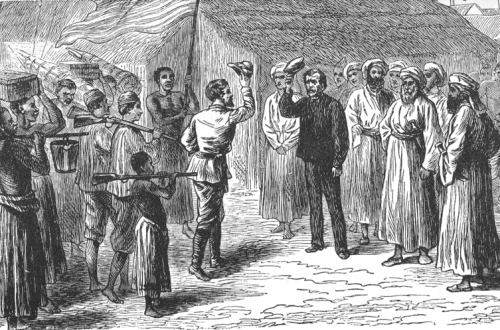It’s not pleasant to read your birthplace being described as Britain’s capital of racism but James Meek’s piece on Burnley and the BNP in the Guardian today is a pretty good overview of the situation in the town and avoids most of the cliches that usually accompany such articles.
My only real gripe is that the voices heard are again, almost exclusively, those of the BNP activists and local Asians. Yet surely any attempt to understand what is going on in Lancashire and Yorkshire (because it is not just a Burnley problem) must begin by going inside the thoughts of those who vote for the BNP, who, as Meek quite rightly points out, are by no means exclusively the much cited ‘disillusioned white working class’.
It is not exactly a discovery to hear that BNP activists are racists and yobs. What makes Burnley and East Lancashire different is that people are voting for these racists and yobs despite campaigns which have exposed the real nature of the BNP very clearly.
There is a problem that anti-fascists in the area have yet to find an answer to. Their campaigning has focused around the slogan ‘Don’t vote Nazi’ and their material highlights the neo-Nazis who are pulling the strings behind the local puppets. But, while I don’t consider my conversations in pubs to be detailed research, the response of the people I have spoken to who voted BNP or who would have liked to have voted for them if they had stood in their area, is that “yes, I know there are some nutters in the BNP, but it’s about time someone stood up for us”. ‘Us’ being white people.
I’m afraid that in some cases the BNP are gaining from the ill-thought-out approaches of the left. When you have economic and social problems that affect the entire community, the focus on seperate solutions based on race, does create the impression of favouritism – whether that favouritism actually exists or not.
In fact the anti-racist strategies of the public sector have done very little to actually assist the working class Asian communities in places like Burnley. In one of the town’s which borders Burnley there are several small factories which employ local Asian women on pathetic wages and poor, almost sweat shop conditions. How have they benefitted from all the equal opportunities programmes in the public sector? Here is a classic case where old fashioned trade union organisation could do so much more than any race-based strategy.
Yet the impression remains that Pakistanis are getting a better deal. Frequently this is based on misunderstandings, poor presentation of policy and sadly often on nothing more than crude racist myths.
Crude racism is the main problem but there are times when the left does itself no favours in the fight against it. Here’s one example:
An old sports club, which was built during the heights of the textile industry, a grand old building with football and cricket pitches out front and a bowling green on the grounds, had fallen into disrepair. The mill that the club belonged to had long since closed down and after years of the sports club struggling to survive on an entirely voluntary basis it closed down several years ago.
The old club is a sorry sight today and the sports fields have grassed over. The terrace streets that once housed the mill workers and the sports club members are in no better state. Many are unoccupied. The state of the clubhouse and the local area are heavily symbolic of decline.
Then a few weeks ago the local paper had a front page story that the old club might have a chance of revival. A businessman is interested in taking over the facility and re-opening it as a private venture. Part of the arrangement would be some public facility that the local council might get involved with. Who knows, maybe even the old sports fields would be re-opened.
The local left-wing councillor was quoted in the paper as saying this was an opportunity that the council should consider seriously and suggested that the public project could be an Asian community centre.
With those words, well-intentioned though they surely were, an issue that promised some hope of a modest boost to the town risked being racialised. What is wrong with a community centre open to all, especially one which has sports facilities? Why is it the left, of all people, who are proposing seperate facilities with access determined on no other basis than race?
It is widely accepted that integration has not proceeded well in these towns and that in housing, education and employment there is not the kind of interaction between people of different backgrounds that you find in multicultural as opposed to bi-cultural towns and cities. (It never appears to have entered the heads of many policy makers that there is an important difference between multicultural and bicultural communities)
Integration is not easy to achieve and there is resistance from within both communities but it should be the goal.
The idea that public funds should be distributed on a racial basis entered the ideas of the left out of a genuine desire to give a boost to communities who were suffering from racism. Yet there is a strong case now suggesting that approach actually fuels racism while doing little to actually help those it aims to benefit. This is especially the case in towns like Burnley and others where there are social and economic problems which cross the racial divide.
There are signs that in Burnley in particular local politicians and public figures are waking up to this. It doesn’t mean stopping much-needed funding of specific projects for Asian areas, it doesn’t mean caving into the racists but it does mean that race should be taken out of the equation whenever possible.


